
What kind of Astrologer Are You?
 Now, before you clutch your moonstone in protest, let’s just establish that this is all a bit of playful exploration. We astrologically inclined folk tend to enjoy a good rummage through the astrological toolbox, sampling different schools of thought. Evolutionary, Psychological, Humanistic, Esoteric—these aren’t warring factions but rather different dialects of the same universal language, each offering its own spin on astrological interpretation. The truth is, once you properly investigate any of these perspectives, you realize they’re not wildly at odds. They’re just different lenses through which we squint at the same cosmic mystery. Some like to dive deep into the psyche, unearthing the Freudian and Jungian ghosts haunting the natal chart, while others prefer to ascend a mystical mountain, draped in silks, chanting about divine oneness. And honestly? Both approaches are valid, charming, and slightly bonkers in their own way.
Now, before you clutch your moonstone in protest, let’s just establish that this is all a bit of playful exploration. We astrologically inclined folk tend to enjoy a good rummage through the astrological toolbox, sampling different schools of thought. Evolutionary, Psychological, Humanistic, Esoteric—these aren’t warring factions but rather different dialects of the same universal language, each offering its own spin on astrological interpretation. The truth is, once you properly investigate any of these perspectives, you realize they’re not wildly at odds. They’re just different lenses through which we squint at the same cosmic mystery. Some like to dive deep into the psyche, unearthing the Freudian and Jungian ghosts haunting the natal chart, while others prefer to ascend a mystical mountain, draped in silks, chanting about divine oneness. And honestly? Both approaches are valid, charming, and slightly bonkers in their own way.
With astrology, you don’t have to be locked into an astrological allegiance or force yourself to pledge undying loyalty to a particular school of thought. Read what you like, flirt with different interpretations—be a dilettante if it pleases you. This little exercise is a light-hearted foray into four distinct astrological perspectives, using Neptune, Pisces, and the twelfth house as our playground. And yes, it’s a fun, breezy process—only three questions, nothing too solemn or survey-like. Because at the end of the day, whether you’re deciphering your destiny through psychological archetypes or drifting on a mystical cloud of intuition, we’re all tracing patterns in the same vast sky.
Evolutionary Astrology
The blurb:
 “Evolutionary Astrology dives into paradigms and methodologies which specifically measure the growth of the soul from life to life. These methods invariably focus on the planet Pluto and its relationship to the Nodal Axis. While it is composed of a set of specific formal methodologies, evolutionary astrology is ultimately characterized less by a technical approach than by a set of philosophical principles defined by natural law. Different evolutionary astrologers may use somewhat different interpretive methods, but they can always be recognized by a devotion to the following core perceptions:
“Evolutionary Astrology dives into paradigms and methodologies which specifically measure the growth of the soul from life to life. These methods invariably focus on the planet Pluto and its relationship to the Nodal Axis. While it is composed of a set of specific formal methodologies, evolutionary astrology is ultimately characterized less by a technical approach than by a set of philosophical principles defined by natural law. Different evolutionary astrologers may use somewhat different interpretive methods, but they can always be recognized by a devotion to the following core perceptions:
1. An acceptance of the fact that human beings incarnate in a succession of lifetimes.
2. An acceptance of the fact that the birthchart reflects the evolutionary condition of the soul at the moment of incarnation.
3. An acceptance of the fact that the birthchart reflects the evolutionary intentions of the soul for the present life.
4. An acceptance of the fact that the circumstances of the present life, both materially and psychologically, do not arise randomly, but rather reflect the evolutionary intentions and necessities of the soul.
5. An acceptance of the fact that human beings interact creatively and unpredictably with their birthcharts; that all astrological symbols are multi-dimensional and are modulated into material and psychic expression by the consciousness of the individual.
6. An acceptance of the fact that human beings are responsible for the realities they experience, both internally and externally.
7. A respectful intention to accept and support a person seeking astrological help, no matter the evolutionary state in which such an individual finds himself or herself.”
Psychology Astrology:
 “On the face of it, psychological astrology can simply be defined as a synthesis of psychology and astrology. But it is much more than that. Each discipline—astrology and psychology—is radically transformed and empowered by its marriage to the other. Indeed, there are so many correlations and possibilities for cross-fertilization that one could easily spend an entire lifetime exploring the connection. In many ways, astrology was the first psychology in that it constituted an early means for understanding the nature of the human being. Rooted in the premise that cosmos mirrors psyche, the ancients systematically observed how the nature and cycles of the planets corresponded to the nature and experiences of human beings.
“On the face of it, psychological astrology can simply be defined as a synthesis of psychology and astrology. But it is much more than that. Each discipline—astrology and psychology—is radically transformed and empowered by its marriage to the other. Indeed, there are so many correlations and possibilities for cross-fertilization that one could easily spend an entire lifetime exploring the connection. In many ways, astrology was the first psychology in that it constituted an early means for understanding the nature of the human being. Rooted in the premise that cosmos mirrors psyche, the ancients systematically observed how the nature and cycles of the planets corresponded to the nature and experiences of human beings.
For all their brilliance, our progenitors practiced an exceedingly simplistic form of astrology in comparison to what we are capable of today. Here, emphasis should be on the word capable, for much of modern astrology is still mired in the dogma of the past. Ancient and medieval astrologers were preoccupied with so-called “good” and “bad” planetary positions—malefic planets, evil aspects, debilitations, falls, afflictions, and other such ominous categories of meaning. While they were obviously aware that people were subject to a process of ageing that culminated in death, there was little or no concept of evolution, that is, of the psycho-spiritual growth of the individual. Accordingly, astrology was largely limited to superficial trait descriptions, fated events, and dubious predictions of good and bad times for various enterprises.
While some scholars might argue that ancient astrology was actually more complex and technique-rich than its contemporary offshoots, this should not obviate the fact that our ancient forebears were wedded to a fatalistic and deterministic model of the cosmos that precluded them from appreciating how lived experience, i.e., fate, can serve as a catalyst for learning and change, and how learning and change can, in turn, alter fate. Astrology was largely discredited following the scientific revolution of the 17th and 18th centuries because it was not intelligible within the mechanistic paradigm that constituted the zeitgeist of the new, modern era. Out of this renaissance of scientific thought, psychology was born, and eventually came to replace astrology as our primary means for understanding behavior.”
Humanistic Astrology
The Blurb
 “At the threshold of the next millennium, we may well ask a simple but important question: how can we, as students of astrology, best bring forward a more perfect life-style, a life-style that is harmonized with the new unified world that is forming, a life-style based on astrology? This question surely has no right or single answer. But if a new millennium deserves a new astrology complete with new insights, perspectives and a new direction equal to the challenge–then a worthy candidate, I suggest, is holistic or as it is usually called ‘Humanistic’ astrology. Humanistic Astrology was first presented in the writings of Dane Rudhyar, the talented astrologer-musician and seminal mind and author (born March 23, 1895) who is considered the originator of this branch of astrology. The following quotation conveys the spirit of his message:
“At the threshold of the next millennium, we may well ask a simple but important question: how can we, as students of astrology, best bring forward a more perfect life-style, a life-style that is harmonized with the new unified world that is forming, a life-style based on astrology? This question surely has no right or single answer. But if a new millennium deserves a new astrology complete with new insights, perspectives and a new direction equal to the challenge–then a worthy candidate, I suggest, is holistic or as it is usually called ‘Humanistic’ astrology. Humanistic Astrology was first presented in the writings of Dane Rudhyar, the talented astrologer-musician and seminal mind and author (born March 23, 1895) who is considered the originator of this branch of astrology. The following quotation conveys the spirit of his message:
“We need something in which the individual learns his own function in the world, because if you are to have a global world, the individual has to be so well established in his own identity that he can afford to cooperate with other people all over the world, independent of their culture, their race, their traditions and so on. It is very important therefore, that one should learn how to establish oneself in one’s own identity.”
We find similar sentiments expressed by the eminent psychiatrist, Victor Frankl. In ‘Man’s Search for Meaning’, a book born of his experiences while a prisoner in Nazi death camps, he writes:
“Everyone has his own specific vocation or mission in life; everyone must carry out a concrete specific assignment that demands fulfillment. Therein he cannot be replaced, nor his life repeated. Thus, everyone’s task is as unique as is his specific opportunity to implement it.”
These two sages of the twentieth century think alike. Their approach is different but the spirit remains the same. Indeed they exemplify what they are teaching. To be an individual is not to be unlike others. Rather, it is to share a common humanity with others–in one’s own way. Theirs is a message that reminds us to take responsibility for realizing our unique individual identity and true role in society. Perhaps we are being too serious? But isn’t that what humanistic astrology is about–serious assessment of our possibilities and unique opportunities for self-realization?
The humanistic astrological frame of reference is the planet earth because that is from where Man peers out to the surrounding vast and starry skies to view the heavens. It is the human viewpoint. From there the astrologer-astronomer, like those of the previous millennia, views the wandering stars, the planets, going now forward, now retrograding, now forward again. The raw data of astronomical observation has not changed. It is the common side shared by astrologers of the past and of the future. But something has changed and if it is not by sophisticated telescopes, computers and software, or other tools that the astrologer of the future offers something new and timely to answer humanity’s need for meaning and fulfillment, then what is it? What the humanistic astrologer has to work with are new concepts.”
Esoteric Astrology
The Blurb
 “Esoteric astrology is the astrology of the soul. The delineation of a natal chart from the soul-centred perspective focuses on the purpose of the soul, why we are here, where we have come from, and where we are heading. Traditional or exoteric astrology is the astrology of the personality. Its focus is on the problems and potentials of the personality. The body of knowledge known as Esoteric Astrology is drawn from the Theosophical tradition and the teachings of the Tibetan teacher Djwhal Khul, as dictated to Alice A. Bailey. It is contained in a voluminous set of books which form a large part of what is referred to as the Ancient or Ageless Wisdom teachings.
“Esoteric astrology is the astrology of the soul. The delineation of a natal chart from the soul-centred perspective focuses on the purpose of the soul, why we are here, where we have come from, and where we are heading. Traditional or exoteric astrology is the astrology of the personality. Its focus is on the problems and potentials of the personality. The body of knowledge known as Esoteric Astrology is drawn from the Theosophical tradition and the teachings of the Tibetan teacher Djwhal Khul, as dictated to Alice A. Bailey. It is contained in a voluminous set of books which form a large part of what is referred to as the Ancient or Ageless Wisdom teachings.
Soul-centred astrology is based on the understanding that there is a spark of divinity, or ‘soul’ within each of us. According to this cosmology, reincarnation and the reality of the soul are accepted as fact. Many sense this divinity. The moments of deep insight, peace, awe, wonder, grace and love that we have all experienced at some time are voices from the Soul. Some call this divinity God/Goddess, the Higher Self, the Core Self, the Transpersonal Self, the inner voice, the Buddha or Christ. It manifests as the religious urge in man/woman. Indeed, Carl Jung, in his book Modern Man in Search of a Soul, makes the astounding assertion that in thirty years of treating patients in the second half of life, their illness or neurosis was invariably the result of a lack of spiritual or religious meaning:
“….there has not been one whose problem in the last resort was not that of finding a religious outlook on life. It is safe to say that every one of them fell ill because he had lost that which the living religions of every age have given to their followers, and none of them has been really healed who did not regain his religious outlook.” This soul, or divine spark, strives towards unity and perfection, and according to the Ancient Wisdom teachings, its motivation is selfless and its purpose is service to humanity or contribution to the greater whole. It is essentially a humanitarian philosophy and is therefore highly appropriate for our incoming Age of Aquarius. According to the Ancient Wisdom teachings, the structure of man/woman can be symbolically represented as a downward-pointing triangle (the personality) linked by the Antahkarana or Rainbow Bridge to an upward-pointing triangle (the soul).”
Question Time for the Astrologers of these Different Schools of Thought
Neptune
The Astrology Place: First Question – Dear astrologers, kindly escort us to the edge of reality and give us a gentle, euphoric shove into the abyss—purely for enlightenment, of course. What pearls of Neptunian wisdom can you offer to start this descent into the mystical fog?
Astrologer 1
[Neptune] This activity of the imagination often occurs in the borderland where the conscious shades into the unconscious. There is no clear line of demarcation between the deliberate lie of an adolescent facing a difficult situation, the nature of which he or she does not really understand, and the imagination of the confused girl whose half-conscious need for love makes her invent events placing on some person the responsibility for an imaginary love-making scene, events which she herself dimly believes to have occurred.
Is it not at times the same with persons who believe themselves to be the recipients of occult or spiritualistic “messages,” who have “visions” and perhaps very slightly twist or “interpret” factual events to give the impression that some great, mysterious thing has taken place? Nevertheless, who, in many instances indeed, can say positively and objectively that a person has imagined or made up entirely a certain unverifiable episode? Who can say that what seems to have been, as we say, “entirely dreamed up” is not the reflection — perhaps the anticipation — of something that is “real” somehow or somewhere? Can one always separate the real from the imagined?
The Astrology Place: (Go on then, spin me a yarn, weave me a beautiful deception.) Truth is a shape-shifter, a many-faced trickster. Some lies shimmer with fragments of truth, while some so-called truths are nothing more than well-dressed fictions. Reality, it seems, is often just a matter of perspective.
Astrologer 2
But the meaning of the planet is bigger than that. It also includes conditions of consciousness that are indeed spiritual practices such as mediation, fasting, chanting, yoga, sacred drumming, and so forth. And in every one of these activities, there are certain common features: consciousness becomes less identified with ego; there is a feeling of surrender to something much vaster than ourselves; and “reality” as we define it consensually – the three dimensional, “reasonable” world – loses some of its compelling authority over us.
The Astrology Place: You’ve led us straight into Neptune’s misty realm—the place where consciousness shifts, the ego loosens its grip, and suddenly everything feels a little more… divine. Neptune, of course, has its wilder temptations—drinks poured, substances burned, reality blurred into a dreamy oblivion. But in its deepest essence, it isn’t about numbing out; it’s about tuning in. The longing to dissolve is a call to surrender, to let go of the known self and merge with something vast, luminous, and ineffable.
And isn’t it fascinating that the word sacred is rooted in sacrifice? Not in the grim, heavy sense, but in the art of offering oneself to a higher current—whether it’s the rhythm of a song, the depth of a photograph, the language of the stars, or the trance of creation. Because some intoxicants don’t come in a bottle; they come in art forms, music, universal patterns, and the meditative drift of the mind when it’s truly free. For a child of the ocean, being “out of this world” isn’t an escape—it’s a calling. And if you’re going to dissolve, let it be into the beauty of the infinite, rather than the bottom of a glass.
Astrologer 3
The mythology of Neptune begins with the mythology of water. In astrological symbolism, Neptune is the ruler of Pisces, the third sign of the water trigon; and the god after whom the planet is named is the lord of the ocean depths. But even if the planet had been called by another name, the language of water arises spontaneously on the lips of those experiencing important transits and progressions involving Neptune. Over and over again I have heard people completely unfamiliar with astrology describe their feelings and perceptions at such critical times with images such as drowning, flooding, drifting, dissolving, swamped, inundated, and flowing with the current. Their dreams at these junctures also reflect the domain of water: tidal waves, sinking ships, leaking pipes and overflowing toilets, flooded house and torrential rain.
The Astrology Place: I know we were aiming for a little loss of consciousness, but did you really have to drag us straight to the ocean floor? A gentle baptism might’ve been the kinder route—then again, who needs subtlety when you can have full-blown submersion? Give me a moment to catch my breath; I can practically feel the water seeping into my lungs.
Astrologer 4
On a more spiritual level, Neptune can bring the individual into contact with the Master Souls who govern the evolutionary processes of the Universe. Neptune brings inspired writing, prophetic visions, and realizations of cosmos truths which go far beyond the powers of reason. Thus Neptune is the planet of the clairvoyant and the mystic.
The Astrology Place: Strange transmissions arrive through these otherworldly channels, but without a solid anchor, they can easily turn from divine calls to delirious static. I, too, am generously marinated in Neptune’s essence, which means ghostly visits and dream visions are just another Tuesday for me. Yet, whenever I share these otherworldly encounters, I can feel the skeptical vibrations rolling in—thick, heavy waves of disbelief. And honestly? The only fitting response is a casual, “Jealous, much?”
Pisces
Second Question: As a Piscean, I’m only interested in reading about mermaids—the sultry, elusive chanteuses of the sea, gliding through the waves with perfect hair and an air of unattainable mystery. Strange-looking fish? No, thank you. Do you have any insights into these divine muses? And if, by some tragic oversight, you have nothing on mermaids, then kindly regale us with tales of Pisces in all its mystical, enchanting, and heartbreakingly beautiful astrological glory. Make it poetic. Make it dreamy. Make it worthy of a water sign that exists somewhere between reality and reverie.
Astrologer 1
Thus, in a negative sense, the Piscean’s attraction to liquor and all fermented products – including oil wells! Their is a tendency on the one hand, toward psychism and spiritualism, and on the other, towards infections of the mucus membranes due to socially or personally generated toxins, impure food and psychological disintegration. Passivity of the Pisces is especially dangerous, for there is always a tendency to become, like the sea, polluted and overwhelmed by the refuse of the old, instead of transfiguring it into a new birth.
The Astrology Place: Is this why, whenever I catch a cold, it settles in like an uninvited houseguest and refuses to leave for weeks? My immune system is famously as soft-hearted as I am—passive, dreamy, and apparently far too polite to kick out a lingering virus. Not exactly the romantic, mystical reading I was hoping for, but alas, Neptune works in mysterious (and mildly inconvenient) ways.
Astrologer 2
Ocean. Not Fishes, but the home of fish. Mother Ocean, the realm of under sierras, of luminous plankton, of lost cities. Ocean mother of life, brooding symbol of all that is impenetrable, all that can be felt but never known. Ocean: Washing of continents, carrying art and thoughts among the nations, carrying war, carrying disease and pestilence, carrying wine and food, poets and musicians, endlessly mixing and blending the cultures of the earth. The Piscean ocean: Liquid, flowing symbol of the unutterable mystery that binds us all together. The symbol of life.
The Astrology Place: A solid answer, but let’s be clear—Mermaid is the preferred term here, not Fish. Accuracy matters in these enchanted waters. Once again, another astrologer conjuring images of polluted oceans within our mystical souls, but fine, I’ll take the unutterable mystery over grim reality any day. Point made—Pisces is the Great Transporter, the ferry between realms. And Neptune? It swirls together dreams, illusions, and spiritual revelations into something unfathomable, strange, and beautifully collective.
Astrologer 3
The underwater landscape of Pisces, the fishes, elusive and mercurial, share the depths with the octopus that guards the buried treasure. Those eager to reach the gold at the bottom of the sea and drink from the cauldron of immortality must fight their way through clinging, strangling tentacles and black clouds or, for the guardian will allow no greedy mortal to claim what belongs to the spirit alone. Yet the magical light of the ancient treasure is a beacon and a promise to those who have lost their way in life can trust the currents of the waters to bring them safely home again.
The Astrology Place: Or, liberating oneself from Ursula’s grasp—breaking free from those villainous tentacles with the beauty of a mermaid reclaiming her voice.
Astrologer 4
The cycle is essential for Pisces. Without periodic cleansing, his waters would soon become polluted by his and other people’s negativity. Pisces is a psychic sponge; for this reason he should use great discrimination in choosing his friends and environment.
The Astrology Place: Now I’m genuinely concerned about the polluted oceans swirling in Pisces’ depths. Message received, loud and clear.
The 12th House
Third Question: Now, shall we step into the misty, elusive expanse of the 12th house? Let’s lose ourselves entirely—drift past the veil and escort me through the gates of the ghostly, the haunted, and the unseen. What secrets await us in this otherworldly realm?
Astrologer 1
Ghosts linger on, alas, with subtle tenacity in the unconscious — the ghosts of things undone, of words unsaid, of small or big gestures which the heart and hands could not be made to perform. The speaker who sees from the clock on the wall that his time is over, that he must bring his speech to an end, may suddenly remember all that he had meant to say but did not. Will he try to crowd the unsaid into a jumble of last-minute statements which would leave his hearers completely confused? Speakers often try and, thus, defeat themselves. One must have the courage to dismiss the things unsaid, the gestures unlived, the love unexperienced and make a compelling end on the basis of what has been said and experienced.
The Astrology Place: This all feels unbearably melancholic—why would you do this to a sensitive soul? Endings are the heaviest sorrow, especially when words remain trapped within us, unsaid and unresolved. And so, we conjure our own ghosts, ones of what could have been, haunting ourselves with unfinished business. But somehow, we must make peace with all that lingers in the spaces between. Please, don’t tell me that poor Twelfth House souls are tasked with deciphering this endless murmur of longing, sorting through the souls of the lost and the restless. Must we truly be the mediators of this haunted house?
“It does not say whether or not you will be able to dismiss your ghosts — dismiss them with a blessing and courageously renew your mind and your life. But it tells you something concerning the nature and insistency of the ghosts you will have to deal with; it gives you a general picture of your subconscious — the realm of ghosts and of the remains of unsolved problems or unlived experiences. It suggests to you the best way to deal with your ghosts and the disintegrating products of your subconscious.”
Astrologer 2
Signs and planets in the twelfth house are like ticking timebombs. The fuse may be long. It may be short. But there is no distinguishing it. Sooner or later, the issues of the twelfth house undercut us. They trip us up. They face us with an impossible situation. Once that situation breaks, we can head for the bar and order a double. Or we can withdraw for a while into our depths, feeling that endless reservoir of creativity and life and resilience within us. And feeling that, we can gracefully let go of a set of dying circumstances, knowing that when the dust settles, we can begin again.
The Astrology Place: The unconscious has a knack for pulling the rug out from under us when we least expect it. And surrendering sounds so dreamy—like drifting weightlessly in a sea of creativity, dissolving into something vast and sublime. Farewell, cruel world—I’ll be floating in the ether if you need me.
Astrologer 3
From the 12th, the ghosts of a distant past come back to haunt us – the family “skeletons in the closet,” the forgotten religious orthodoxy of a great grandfather, the long suppressed story of the great-aunt’s suicide and the great grandmother’s “second sight,” the poverty of the immigrant, and the religious persecution of two hundred years before.
The Astrology Place: What a gloriously leaky house—water seeping in from every dimension. If only I could patch it up for you, dear Twelfth House souls, but alas, some homes are meant to drift, not be anchored.
Astrologer 4
The special “karma” of the Twelfth House has had to do with the collective. The Twelfth synthesis what has been stored from previous turns of the astrological wheel, that is, other life cycles. Thus, it is the storehouse of secret treasures as the strength we have gained from experience. The last house of the horoscope contains our oceanic reserves of power and potency from all the good we have done and all the positive service we have performed. In effect, is is the repository of our “good karma.”
The Astrology Place: You’re making Twelfth House souls sound like full-time spiritual caretakers! Who knew we were all out here playing good Samaritans? Also, who would’ve guessed the 12th house came with such expansive closet space—perfect for all those hidden dreams, forgotten selves, and the occasional wandering ghost.
The Score
If you like mostly answers 1 = Humanistic Astrologer
If you like mostly answers 2 = Evolutionary Astrologer
If you like mostly answers 3 = Psychological Astrologer
If you like mostly answers 4 = Esoteric Astrologer
I should of told you my “quiz” was pointless at the beginning.
Astrologer 1 is Dane Rudhyar
Astrologer 2 is Steven Forrest
Astrologer 3 is Liz Greene
Astrologer 4 is Alan Oken


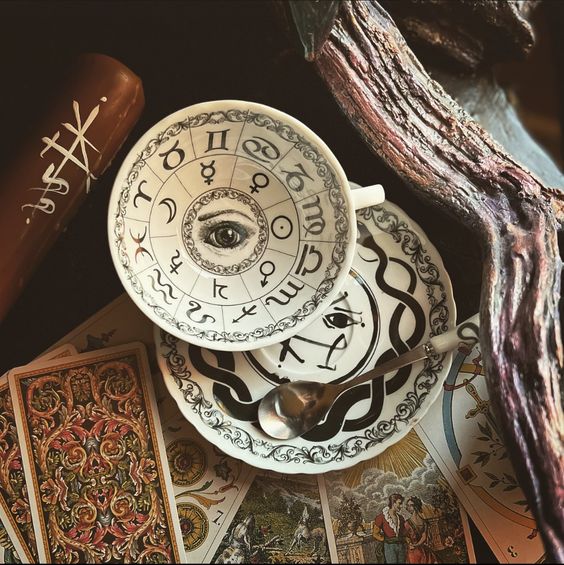



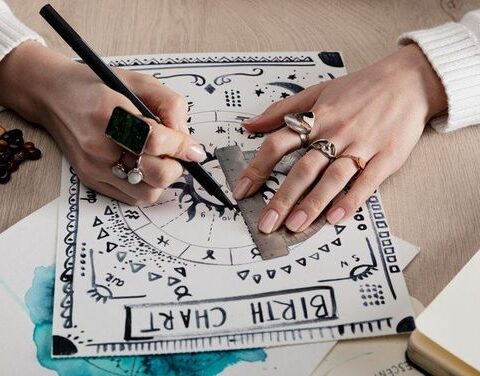
 Just Eat it: Moon-Jupiter, Moon-Saturn, Moon-Uranus, Moon-Neptune, and Moon-Pluto Eating Habits
Just Eat it: Moon-Jupiter, Moon-Saturn, Moon-Uranus, Moon-Neptune, and Moon-Pluto Eating Habits
 Pluto in the 12th House
Pluto in the 12th House
 The Dark Side of Taurus: Love, Obsession, and Self-Esteem
The Dark Side of Taurus: Love, Obsession, and Self-Esteem
 Pisces Fish Symbol Meaning
Pisces Fish Symbol Meaning
 The Differences Between Synastry and Composite Charts!
The Differences Between Synastry and Composite Charts!
 Taurus: Psychology
Taurus: Psychology
 Sun Square Pluto Natal Aspect: I Am Titanium
Sun Square Pluto Natal Aspect: I Am Titanium
 Sun Conjunct Pluto Synastry: Enlightening or Annihilating
Sun Conjunct Pluto Synastry: Enlightening or Annihilating
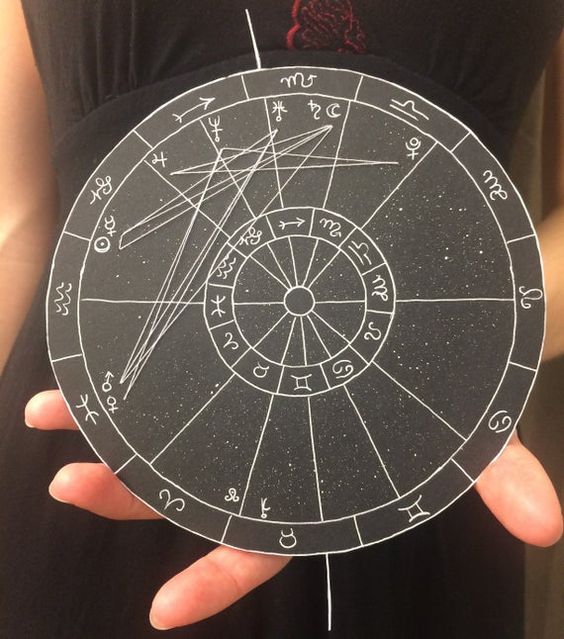 Astrology Degrees and Meaning
Astrology Degrees and Meaning
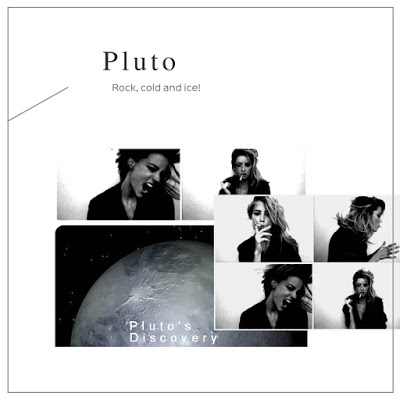 Pluto’s Discovery and Astronomical Features
Pluto’s Discovery and Astronomical Features
 Jungian and Freudian Astrology: Part 1
Jungian and Freudian Astrology: Part 1
 Venus-Pluto: The Magnificent Obsession
Venus-Pluto: The Magnificent Obsession
 Material Mysteries: Pluto in the 2nd House, According to Astrological Research
Material Mysteries: Pluto in the 2nd House, According to Astrological Research
 Sun Square Pluto Synastry: You’ve Got That Power Over Me
Sun Square Pluto Synastry: You’ve Got That Power Over Me
 Moon Trine Mars Natal Aspect
Moon Trine Mars Natal Aspect
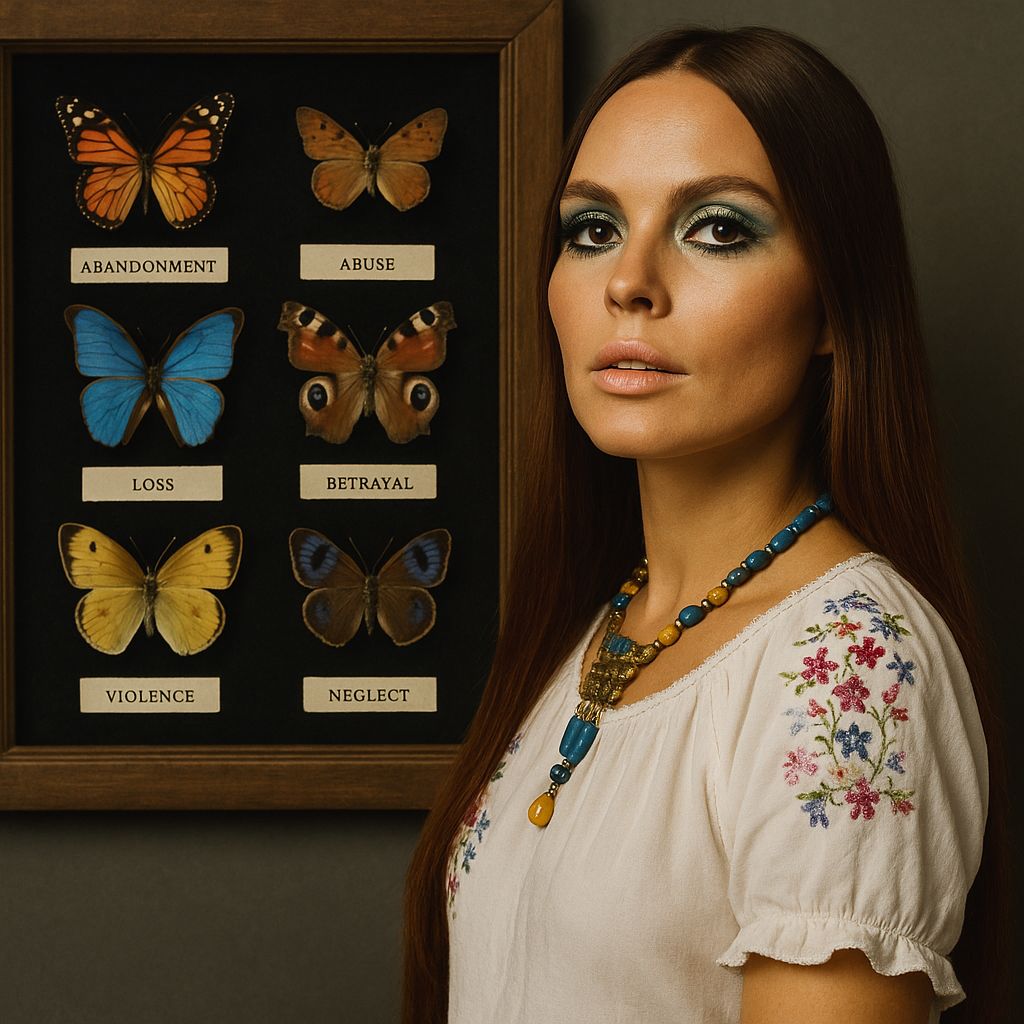 Signs You’re a Plutonian (Part 2)
Signs You’re a Plutonian (Part 2)
 Neptune in the 1st House
Neptune in the 1st House
 Pluto Aspects – Who Are You Kidding?
Pluto Aspects – Who Are You Kidding?
 Venus in the 8th House: A Deeper Love
Venus in the 8th House: A Deeper Love
 Mercury Opposite Uranus Natal Aspect
Mercury Opposite Uranus Natal Aspect